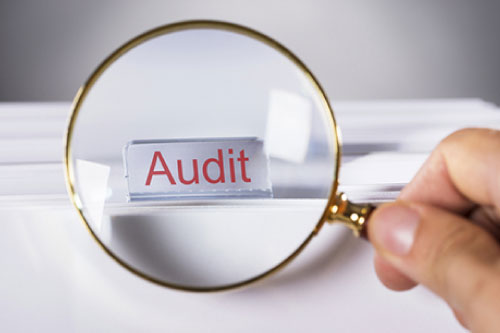Running a business requires a lot of attention, especially when you have employees. Any business who has employees is sure to be familiar with the California Employment Development Department (EDD). The EDD is the California state taxing authority responsible for the collection and accounting of employment taxes and enforcement of California’s employment tax laws. When a business is suspected of not complying with the employment tax laws, the EDD will begin an audit to ensure everything is being reported properly. In this blog, we will discuss what issues the EDD may audit a business for, what the process of the EDD audit entails, and why representation from a California EDD tax attorney can help you.
Why Is The EDD Auditing My Business?
Before beginning the audit process, the EDD will send a notice which should list what items the EDD is specifically auditing. However, this does not mean the audit will be limited to those items if the EDD finds information that uncovers other issues. The most common reasons for an EDD audit are:

- Unfiled payroll tax returns/unpaid payroll taxes
- Having independent contractors that should be classified as employees
- Verification that gross wages and taxable wages have been properly reported
- Proper withholding and reporting of personal income taxes for wages paid to employees
- Unemployment Insurance Fraud
- Disability Insurance Fraud
It is important to understand that upon receiving the audit notice from the EDD they will be very thorough during their examination. The ultimate goal for them is to assess and collect as much in fines, penalties, interest, and back taxes as they can. The EDD is also able to share any information they find during an audit with the IRS, which could lead to additional tax issues. Needless to say, being complacent when receiving an audit notice from the EDD is not advisable.

How Many Years Can Be Audited?
A typical EDD audit starts with a test year, which will be the most current year or most current four tax quarters. If this test year shows misclassification issues with employees or the improper handling of payrolls taxes, the EDD auditor will most likely open the audit up to the three most current tax years or twelve most recent tax quarters. Should the EDD auditor continue to find issues, they have the ability to open the audit even further.
For more information on properly classifying employees or payroll taxes see our blogs The Consequences of Misclassifying An Employee and How The EDD Can Personally Assess You For Past Due Payroll Taxes.
The EDD Audit Process
Initial Interview
As mentioned above the first step in the EDD audit process is issuing an audit notice that should state what items are being audited. Before reviewing any records the EDD auditor will typically schedule an interview to discuss the items they will be auditing, the documents they are requesting, and to ask some general questions about how the business operates. The following are common documents that will be requested:
- Payroll register
- Employee register
- A filled out general employment questionnaire
- Wage information for specific quarters (W-2s, 1099s, DE-9s, etc.)
- General ledger registers
This initial interview is very important because this will be where the first impression is made for how the business has been operating. If the EDD auditor gets the sense that the business is unorganized or that their questions are not being fully answered, this may cause the audit to be expanded.
The Audit
Once the requested information has been provided, the actual audit will commence. Before scheduling a follow up in person meeting, the audit examiner (after reviewing the initial requested information) may have additional questions regarding payroll records and how they are being kept and or tracked, why specific workers are classified a certain way, and employee records.
The time it takes to have these initial steps completed can take anywhere from a couple weeks to several months depending on the scope of the audit and the workload the audit examiner has. After reviewing all information that was requested, the audit examiner will then send a notice of proposed assessment and schedule an exit interview.
Exit Interview
The EDD auditor will schedule an exit interview to review their findings with the business owner. If the business owner does not agree with the proposed assessments, they are able to request a pre-assessment conference with the auditor’s supervisor. This will allow the business owner to state their case as to why the proposed assessments are incorrect and potentially supply additional information. However, the chance of the initial proposed assessment being changed is very low given the fact that most information should have been provided during the initial stages of the audit. Again, this is a reason for having legal representation so that the audit process is as smooth as possible.

Appeals
After the exit interview has been completed, a notice of assessment will be issued. If the business owner still disagrees with the assessment, the business owner will be able to appeal the assessment with the California Unemployment Insurance Appeals Board. However, the business owner must file the appeal within a given time frame from when the assessment is made or they will lose their appeals rights and the tax amount will become due. Business owners that fail to pay the assessment either in full or through a payment agreement may be subject to collection action along with penalties and interest. In certain cases, the business owners could also become personally liable.
For more information regarding the EDD audit process see The EDD’s Employment Tax Audit Process.
EDD Audit Representation
Even business owners who are extremely organized can benefit from having an experienced EDD tax attorney. Making sure all required information that is requested by the auditor is provided in a clear and concise manner is a major part in keeping the audit moving forward. If information is being piece mailed or is not clear in what it pertains to, it is likely to create confusion with the audit examiner and will ultimately lead to more questions.
It is reasonable to expect that an EDD audit can last anywhere from a few months to 2 years depending on the complexity of the case. Having an EDD tax attorney handle this long process will allow a business owner to continue to operate the business and not be completely distracted with the audit. Having an experienced EDD tax attorney who is familiar with how to navigate the EDD’s audit process will ensure that the best outcome is being reached.
Conclusion
Being audited by the EDD is not something to take lightly. Responding to the initial audit notice before speaking with an EDD tax attorney is not advisable. Any information you give to the audit examiner could possibly lead to additional inquiries. Hiring legal representation to make sure the audit process is properly handled can make all the difference in a case. Not only will they know the EDD’s procedures and the process for how the audit should be conducted, but they will be able to allow you to focus on running your business.
If you are dealing with an EDD audit or other EDD tax issues, please give us a call at 760-932-0042 for a free consultation.
